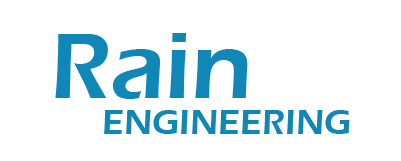Humans are communicative beings.
It doesn’t matter if you’re the president of a Fortune 500 company or currently standing in the unemployment line, communication is going to be the key to continued or future successes in your career.
This is especially true in the world of manufacturing.
Communication is the lifeblood of the modern manufacturing industry, serving as the cornerstone of effective collaboration, quality control, safety, and innovation.
In a landscape characterized by intricate supply chains, evolving technologies, and heightened customer expectations, the significance of clear and efficient communication cannot be overstated.
Today, we dive into the multifaceted importance of communication within the manufacturing sector and its far-reaching impacts on operational excellence and overall success.
Folks, teamwork makes the dream work.
In manufacturing, various departments, teams, and processes need to work together seamlessly to achieve organizational goals.
Efficient communication fosters coordination among different teams, such as design, production, logistics, and quality control.
Through open channels, employees can exchange information, share insights, and address challenges in real-time. This collaboration prevents bottlenecks, minimizes production delays, and optimizes resource allocation, leading to a more efficient and responsive operation.
Nothing projects a better light on your company than the output of a great product.
In manufacturing especially, high-quality products are the hallmark of a successful operation.
… And, naturally, effective communication plays a pivotal role in maintaining stringent quality standards.
Clear communication channels enable the identification, reporting, and resolution of defects and deviations from specifications. This ensures that faulty products are caught before reaching customers, safeguarding the reputation of the manufacturer, and maintaining customer trust.
Safety is paramount in manufacturing environments that involve heavy machinery, complex processes, and potential hazards.
Communication is essential for disseminating safety protocols, providing training, and sharing information about potential risks.
In emergencies, swift and effective communication can save lives by ensuring a rapid response and enabling the orderly evacuation of personnel.
Manufacturing supply chains are often extensive and complex, involving multiple suppliers, partners, and vendors.
Effective communication is crucial for maintaining accurate inventory records, managing production schedules, and adapting to fluctuations in demand.
Timely communication ensures that supply chain disruptions are minimized, production remains steady, and customer commitments are met.
A business is nothing without its customers. That’s true for all businesses.
… And, in the case of manufacturing processes, they are driven by a list of unique customer demands and differing specifications.
This is exactly the type of situation where clear communication is going to be a vital component.
Clear communication channels between manufacturers and customers ensure that expectations are well-understood and met.
Don’t think this is a one-way street, though…
Helpful feedback from customers can lead to product improvements and innovations that align with market trends, enhancing customer satisfaction and loyalty.
The manufacturing industry is characterized by constant innovation and technological advancements.
As we’ve noted time and time again here at Rain Engineering (SEE HERE) this is a continuously developing – and improving – industry that requires any business to adapt or risk falling behind.
To help foster this continued development, effective communication helps to create an environment where employees can share ideas, propose solutions, and collaborate on process improvements. This open exchange of knowledge enables manufacturers to adapt to changing market conditions and implement new technologies, ultimately staying competitive and relevant.
Perhaps just as important, yet often overlooked, in the list of employee priorities is the continued pursuit of the positive engagement and morale of your staff.
Engaged employees are more likely to contribute positively to their work and the organization as a whole.
That’s why transparent and open communication between employees and their employers is a vital component to operating a successful plant.
Transparent communication demonstrates that employee input is valued, leading to increased job satisfaction and motivation.
Regular communication channels, such as team meetings and feedback sessions, provide opportunities for employees to voice their concerns, contribute ideas, and participate in decision-making.
Despite all your efforts to keep your facility as positive an environment as possible, people do have a tendency to run into conflict from time to time.
Unfortunately, this is just part of human interaction.
It’s important to remember that, misunderstandings and conflicts can arise in any workplace.
Effective communication provides a platform for addressing issues promptly and resolving conflicts amicably.
Open dialogue encourages team members to express their perspectives, understand others’ viewpoints, and find common ground, fostering a cohesive and productive work environment.
In the dynamic landscape of manufacturing, communication stands as the linchpin that holds together the intricate web of processes, people, and technologies.
From fostering collaboration and innovation to ensuring safety and quality, effective communication is the driving force behind operational excellence and sustained success.
As the manufacturing industry continues to evolve, organizations that prioritize clear and efficient communication will be better positioned to navigate challenges, capitalize on opportunities, and deliver superior products to the global marketplace.
P.S. If you’d like to streamline your facilities communication efforts to become a more efficient and profitable business, then Manufacturing KnowHow from Rain Engineering is for you.
Manufacturing KnowHow from Rain Engineering gives you simple and inexpensive training with workshops designed to help you prepare your entire company for a digital transformation.
In addition to communicating big picture goals, it also helps your organization:
It’s easy and it is for everyone!
Whether you are an executive looking to get your team on the same page, a front-line worker tasked with selecting technologies, or a user who is being asked for feedback on new systems, using Manufacturing KnowHow will help you accelerate, without expensive consultants or misleading technology demonstrations.
So, what are you waiting for?
Put a stop to your company’s wasteful habits and start utilizing the resources at your disposal by taking advantage of Manufacturing KnowHow from Rain Engineering today!
